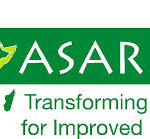IFPRI has been associated with the collection and analysis of ERHS data since the survey’s first round in 1989, when data on consumption, assets, and income were critical to understanding the household-level response to food insecurity during civil conflict.
Ethiopia National Nutrition Strategy
In 2004, the Ethiopian government made developing a clear and comprehensive national nutrition strategy a top priority, and the Ministry of Agriculture approached IFPRI and the United Nations Children’s Fund (UNICEF) for research and technical support
Agriculture, Food Policy Research and Capacity Strengthening in Bhutan
In 2010, IFPRI in partnership with the Bhutanese Ministry of Agriculture and Forests, with support from the governments of Bhutan and Switzerland, developed a policy research and capacity strengthening program in the country.
Gender and Governance
The objectives of this project (2007–2009) were to improve the governance of service delivery in rural areas by removing development barriers, provide more equitable access to available services, and reduce corruption and elite capture in rural service provision.
The Central American Free Trade Agreement (CAFTA): Impact on Agriculture and Rural Sectors in Five Central American Countries
This analysis, supported by the Netherlands, found that CAFTA’s trade liberalization would have a positive, albeit small, impact on economic growth.
Index-Based Weather Insurance in Ethiopia
In Ethiopia in 2009, IFPRI researchers saw the promise in an innovative index-based weather insurance plan—which automatically delivered payments to farmers when the local rainfall index fell below a certain level, thereby avoiding any costly estimation of potential yield losses.
Maize Export Bans in Tanzania
In 2012, IFPRI was commissioned to evaluate the maize export ban in Tanzania.
Partnering with the Association for Strengthening Agricultural Research in Eastern and Central Africa (ASARECA)
In collaboration with the Association for Strengthening Agricultural Research in Eastern and Central Africa (ASARECA) and other partners, IFPRI aims to spur agricultural growth in the region by increasing productivity and competitiveness.
Collaborative Master’s Program of Science in Agricultural and Applied Economics
In 2002, in response to strong demand for African agricultural economists, IFPRI’s 2020 Vision Initiative, the Eastern and Central African Policy Analysis Programme, and the African Economic Research Consortium initiated the development of a collaborative Master’s Program in Agricultural and Applied Economics.
Assuring Food and Nutrition Security in Africa by 2020
In 2004, IFPRI facilitated an all-Africa conference, bringing together more than 500 actors and stakeholders from 50 countries to deliberate on how to bring about change and action to assure food and nutrition security.
- « Previous Page
- 1
- …
- 14
- 15
- 16
- 17
- 18
- …
- 22
- Next Page »




